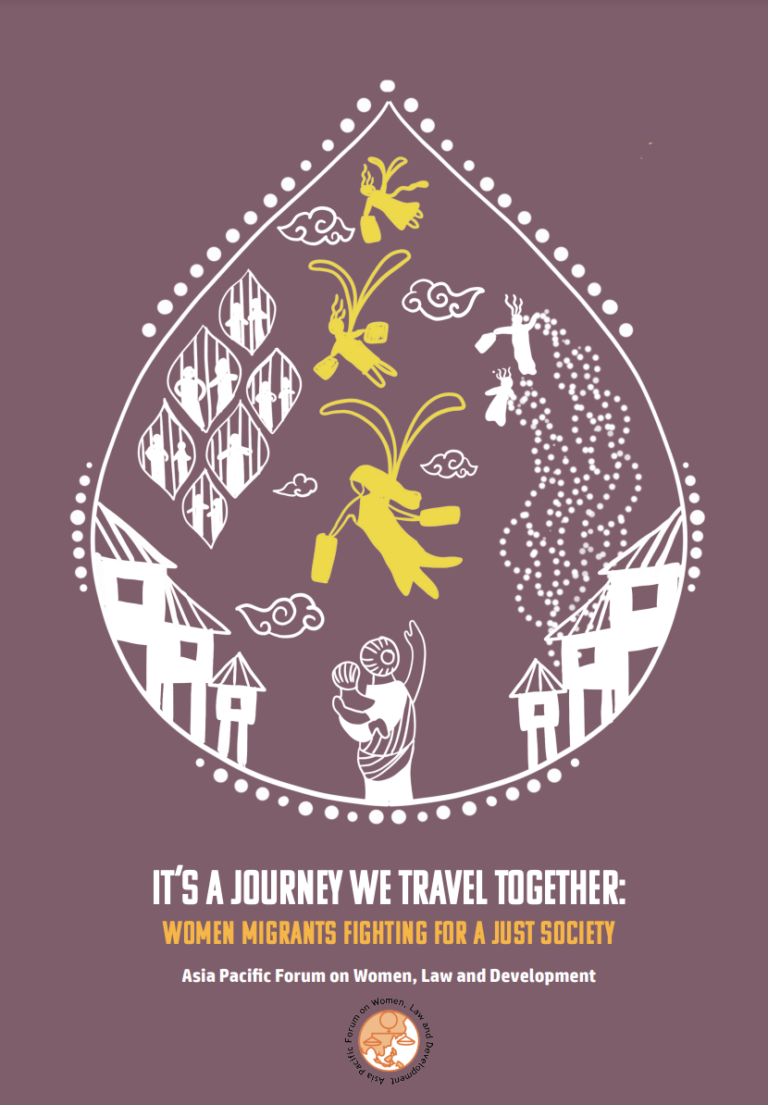This report describes the Feminist Participatory Action Research (FPAR) carried out by seven organisations from six countries across Asia and the Pacific region (Kyrgyzstan, Nepal, India, Malaysia, Indonesia and Hong Kong) between 2019 and 2021. The women migrants who partnered with APWLD in this research described how migration was an inevitable response to poor living conditions and prospects that deny their human rights and fundamental freedoms. Their migration is a refusal to accept this, showing initiative and resilience. They brought these characteristics to the FPAR, sharing their experiences and analyses and took on exclusion from legislation or bad laws and policies, exploitative recruitment agencies, abusive employers, and a lack of access to services and to justice. As the world changed with the spread of the COVID-19 pandemic, the partners had to adapt their plans, ensuring safety and instituting collective care mechanisms, as well as joining the pandemic response. Some had to cope with the digital divide, but others found opportunities amid the restrictions, expanding their reach as the world moved online.
Researching the most immediate concerns of women migrants from or in those countries, the FPAR findings demonstrate that, at home and abroad, women face systemic marginalisation and discrimination, putting them at a disproportionate risk of human rights abuses throughout the migration cycle. It also demonstrated that women migrants are not prepared to accept this. Building their skills, the FPAR partners have used the research findings as an evidence base for action – through communications and advocacy they have made connections, built alliances and strengthened movements, lobbied governments and raised their issues with UN representatives, and achieved meaningful change for their sisters and communities. And they are not finished.

